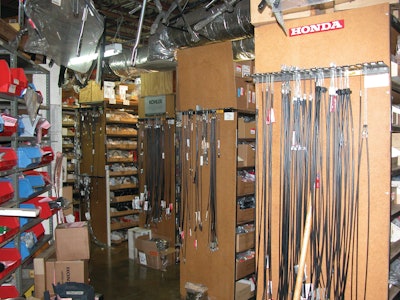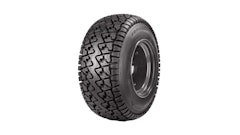
Over the past several years, consumers have researched their purchases online more and more. Along with the trend toward internet research before a purchase, the number of consumers who choose to ultimately buy their products online has also grown.
Outdoor power equipment parts have become a big online seller. A simple Google search for “buy lawnmower parts” draws over seven million results in less than half a second. A mix of manufacturer, dealer and aftermarket parts websites lead the results. Sites like ereplacementparts.com offer replacement parts for outdoor power equipment and household items, along with DIY tutorials.
The Marketplace Fairness Act
The advantage for most consumers who purchase online goes beyond convenience to the cost savings of avoiding sales tax for online purchases. The Marketplace Fairness Act of 2013 that was passed by the U.S. Senate in May could be a game changer when it comes to escaping tax payments on online purchases.
This bill (S. 743) is aiming to force online sellers to charge customers outside the state(s) they have a physical presence in a sales-and-use tax at the time of purchase. However, "small sellers" will be exempt. A small seller generates less than $1 million in remote (online) sales annually.
Large corporations like Walmart and internet retail powerhouses like Amazon.com, which have multiple distribution centers across the country and are already charging most customers sales tax, are huge supporters of the bill in hopes that it will muscle out their small-time competition. Smaller businesses, on the other hand, will be faced with the added financial cost of meeting compliance and the threat of a possible tax audit from 45 states.
Streamlined Sales and Use Tax Agreement
The varying tax rates and assorted exempt products add to the complication in calculating accurate charges and the likelihood of an audit. The Streamlined Sales and Use Tax Agreement (streamlinedsalestax.org) was introduced to simplify tax administration and thereby reduce the burden of compliance by sellers. There are 22 Full Member States in compliance of the agreement that can collect tax on products shipped to their states, including:
- Arkansas
- Georgia
- Indiana
- Iowa
- Kansas
- Kentucky
- Michigan
- Minnesota
- Nebraska
- Nevada
- New Jersey
- North Carolina
- North Dakota
- Oklahoma
- Rhode Island
- South Dakota
- Utah
- Vermont
- Washington
- West Virginia
- Wisconsin
- Wyoming
eMainStreet Alliance
Strongly against the Marketplace Fairness Act, several small independent business owners have come together to form the eMainStreet Alliance (emainstreet.org). The volunteer group is working to prevent the legislation and ensure that the voice of small business is heard—just as the retail giants have been—and that the added stresses the bill puts on them is realized. According to the Alliance, the cost of integration, compliance, audits and remittance for internet retailers will be somewhere between $20,000 and $300,000 in just the first year.
Small business owners would likely be impacted by the Marketplace Fairness Act, but internet customers will likely keep on buying.
According to a survey of roughly 2,500 online consumers conducted by advisory firm AlixPartners, close to 30% said they would head back to the brick-and-mortar stores if the tax bill became a law. But nearly half of those surveyed said the internet sales tax wouldn’t cause them to change a thing about their buying habits. Convenience has a price and most people will pay it.
“As long as the order process is easy, and the merchant has a system to be able to ship orders in a timely manner, it won’t matter,” says North Carolina lawn equipment dealer Jerry Clay. “Customers are going to continue to purchase online even if they get charged sales tax or shipping.”




















